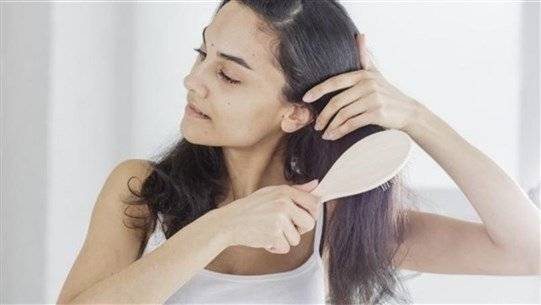Dr. Shelby Ketrpal, a dermatologist at the Cleveland Clinic, stated that the hair lifecycle is "relatively short," regardless of its health, explaining that it is normal for a person to lose between 100 and 200 hairs per day. She added that there are reasons why women may experience more extensive hair loss, in addition to hair damage from coloring, blow-drying, and excessive washing. Other factors include nutritional deficiencies and some health issues, such as thyroid disorders and anemia, as well as the effects of genetics, age, and life events like major surgeries or childbirth. Dr. Ketrpal outlined six types of vitamins and dietary supplements that promote hair health and help address hair loss or damage, along with their potential outcomes.
1. **Multivitamins:**
Multivitamins can help bridge nutritional gaps, according to Dr. Ketrpal, who recommends taking a vitamin set that contains "B" vitamins, zinc, and at least 2,000 International Units of vitamin "D," particularly since "B" vitamins and zinc play roles in the health of hair follicles. The "B" vitamins also aid in the formation of red blood cells, while vitamin "D" may assist in generating new red blood cells. She mentioned that "B" vitamins can be found in seafood, whole grains, and dark leafy greens, while zinc is present in beef, lentils, shellfish, and spinach. Vitamin "D" can be found in fatty fish, mushrooms, dairy products, fortified grains, and drinks, among others.
2. **Vitamin A:**
The expert affirmed that vitamin "A" is essential for cell growth and supports the growth of healthy hair, noting that skin glands also benefit from vitamin "A" to produce sebum (the oily substance secreted by the skin), which maintains scalp moisture and hair health. However, she cautioned that excessive intake of vitamin A can lead to hair loss, so it is important to consume it in moderation, with the recommended daily allowance being 700 micrograms for women and 900 micrograms for men. Vitamin "A" is naturally found in milk, eggs, yogurt, sweet potatoes, carrots, spinach, pumpkin, and turnips, among others.
3. **Vitamin C:**
Vitamin "C" is well-known for its benefits for skin and hair, according to Dr. Ketrpal, who mentioned that it helps combat free radicals, which damage hair health and growth. Vitamin "C" is also important for collagen production, a protein used to make keratin, one of the main components of hair. Strawberries, bell peppers, and citrus fruits are good sources of vitamin "C."
4. **Iron:**
Dr. Ketrpal indicated that iron is also important for hair growth and health, and its deficiency can lead to anemia, which may cause hair loss. She urged those who consume red meat less than twice a week to consider taking iron supplements. Iron can also be found in dark leafy vegetables and legumes such as lentils and broad beans.
5. **Omega-3 Fatty Acids:**
The dermatologist emphasized that omega-3 fatty acids are essential for cell, scalp, and hair health, indicating that they are present in fatty fish, shellfish, flaxseeds, and others. They can also be obtained from dietary supplements such as fish oil.
6. **Biotin:**
Dr. Ketrpal stated that hair care experts recommend biotin, a B vitamin, to help promote healthy hair growth, suggesting a daily intake of between 3 to 5 milligrams, noting that any excess will be excreted in urine. Biotin can be obtained through the diet by consuming foods such as egg yolks, whole grains, fish, seeds, nuts, sweet potatoes, broccoli, cauliflower, and meats.
**Realistic Outcomes**
Dr. Ketrpal confirmed that the success of using a dietary supplement depends more on the duration of hair loss than anything else, explaining that individuals who have experienced hair loss for only two or three years have a better chance of achieving desired results than those who have suffered for 10 years or more. She added, "A person may be able to achieve some recovery and return to their condition as it was five years ago, but not more than that."
The dermatologist concluded by recommending individuals concerned about hair loss visit a primary care doctor or dermatologist, who can help determine the most suitable types of shampoos, supplements, and treatments for hair growth.




